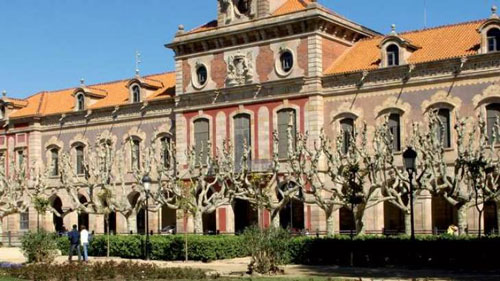Barcelona
Catalonia’s new parliament elected Friday a hardline separatist speaker as its pro-independence lawmakers prepare to form a government in the northeastern region of Spain.
Laura Borras was appointed to the post with the backing of separatist parties, which boosted their majority in the assembly in a regional election on February 14, winning 74 seats in the 135-seat chamber.
Her election is a likely first step towards the formation of a separatist coalition government made up of her “Together for Catalonia” (JxC) party, the more moderate ERC and possibly the tiny CUP formation.
A philologist by training, the 50-year-old was previously the spokeswoman for JxC in Spain’s national parliament where she fiercely opposed Socialist Prime Minister Pedro Sanchez.
Her position contrasted with that of the ERC which helped Sanchez get reinvested as premier and voted in favour of his minority government’s budget last year.
Borras belongs to the same party as former Catalan president Carles Puigdemont, who fled to Belgium after Catalonia’s failed 2017 independence bid to avoid arrest.
“This legislature must be a turning point in the advance towards the independence of Catalonia,” she said after she was elected speaker of the Catalan parliament.
The assembly has until March 26 to vote in a new regional president for Catalonia, whose roughly 7.8 million residents are deeply divided over the issue of independence from Spain.
The best-placed candidate is outgoing Catalan vice president Pere Aragones of the ERC which won 33 seats in last month’s election, one more than JxC.
The Socialists, who govern at the national level in Spain, came in first place in the regional election but lack sufficient support from other parties to form a government.
The Catalan regional authorities are due to restart talks with Socialist Prime Minister Pedro Sanchez’s government to try to resolve the crisis over the region’s separatist drive.
But the two sides are far apart on the issue, with separatist parties demanding a legal referendum on independence and an amnesty for its leaders in jail or on the run for their role in the 2017 independence bid.
Sanchez opposes a referendum, offering instead greater autonomy for the wealthy region and a possible pardon for the separatist leaders.
A staunch defender of the Catalan language, Borras in 2016 signed a controversial manifesto which called Spanish a “colonising language” in Catalonia.
She is facing trial for allegedly awarding contracts worth 260,000 Euros ($315,000) without competition to a colleague when she headed the Catalan Institute of Letters, a regional body charged with promoting Catalan language and literature.
Borras denies the allegations, arguing they are part of the “judicial persecution” of Catalan separatists.—AFP









